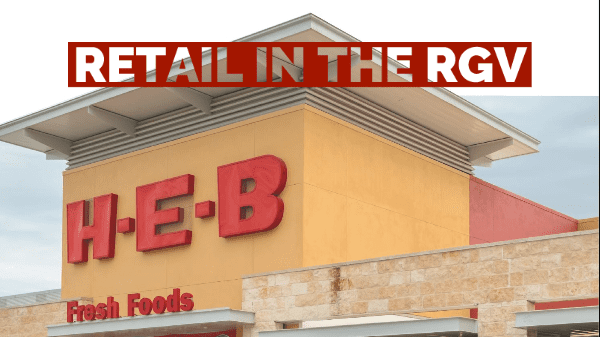From fresh produce suppliers’ perspective, the Valley’s retail is certainly competitive.
Michelle Cortez, sales manager for Empacadora GAB, Inc, BB #:139777 says there are many “suppliers and not that many outlets; fifteen years ago, the area had more retail diversity with stores like Albertsons and Kroger. Now there are small regional stores and just two chains—H-E-B and Walmart.”
Barbara Gray, sales manager for G.W.R. Produce, Inc., BB #:125993 a broker and receiver in McAllen, opines that of the two chains, H-E-B carries better produce.
She also agrees that in other parts of Texas, there are many options such as Kroger and United Supermarkets, but not in the Valley. “The 99-Cent store sells some produce and convenience stores sell a little they can order from small distributors. The H-E-B stores are constantly busy.”
Gary Huddleston, grocery industry consultant for the Texas Retailers Association, says, “In places like Brownsville, Edinburg, Harlingen, and beyond the Rio Grande Valley in Laredo and Corpus Christi, H-E-B dominates.”
The challenge to suppliers in a market dominated by two large chains is that H-E-B and Walmart have strict guidelines that make it harder for the smaller purveyors to get a foot in the door.
Lura Dietze is the third-generation owner of Corpus Christi Produce Company, Inc., BB #:105404 a receiver and jobber for the foodservice industry.
The company sells to foodservice venues from white tablecloth to fast-casual eateries, contract feeders, schools, and healthcare. Even though the Valley is 150 miles south of Corpus Christi, the two areas have similar demographics—high Hispanic populations and modest median annual household income.
Says Dietze, “South Texas is not as competitive as places like San Antonio and Houston. We have access to produce from Mexico, so prices are lower. There’s one other produce distributor in Corpus Christi, and we compete with full line distributors Labatt and Sysco.
“A produce distributor out of Houston is trying to expand into Corpus Christi and points south because it’s so competitive up there,” adds Dietze. “However, there are advantages to being local; we deliver seven days a week and can head back out if something is missing from an order. We provide quality and service to our customers and do business with people who remember my grandfather. We’re very successful in our niche.”
Pamela Mitchell, in sales at Empacadora GAB, says, “There’s a place for everyone as long as you have good product. About a year and a half ago, Mother Nature washed out the celery crop. Customers who were used to getting 1ten to twenty loads a week could only get two or three loads of the quality they required. We communicated with the buyers, they understood and worked with us.”
This is multi-part feature adapted from the Rio Grande Valley Supplement in the January/February 2020 issue of Produce Blueprints.



